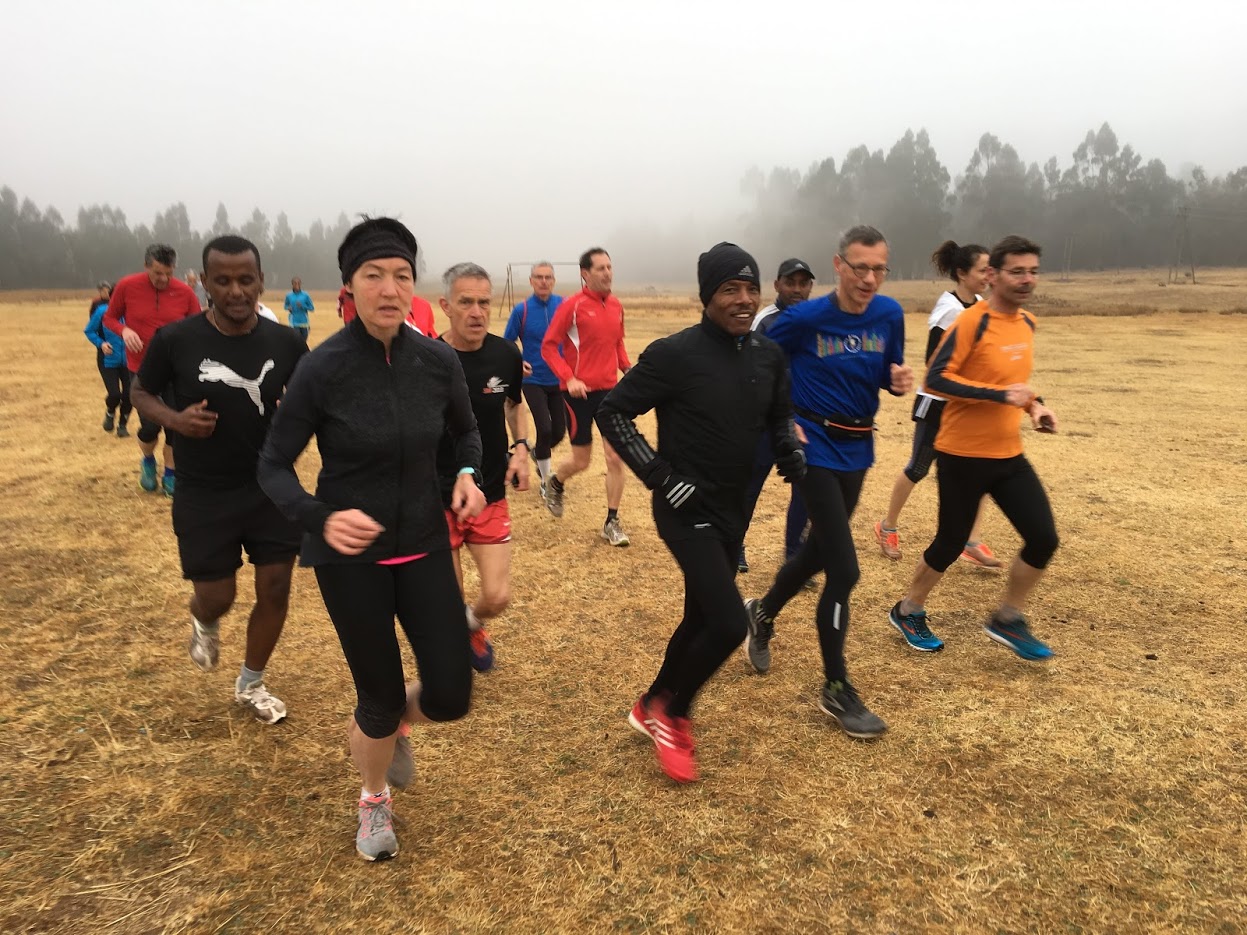Ethiopian Running Culture
Hardly any other country on this planet is as diverse and original as Ethiopia. This ancient Christian country can look back on almost three thousand years of cultural history. Ethiopia’s landscape fascinates with its vastness and beauty. It inspires with its rugged canyons and abysses, active volcanoes, tranquil lakes, vast savannahs, green forests and extensive high plateaus. The country has great biological diversity and, due to its high mountain ranges, is also known as the “Roof of Africa”.
The presence of extensive highlands may be one of the reasons why Ethiopia has always been a top nation when it comes to endurance running. Looking at any medals table across the last 60 years proves it all: he first gold medal for Africa as a whole Continent came for Abebe Bikala of Ethiopia, winning the Olympic marathon Rome in 1960 running barefoot. Two decades later, Miruts Yifter “The Shifter” was taking double golds in the 5’000m and 10’000m at the Olympics in Moscow. Between 1993 and 2000, Haile Gebreselassie won four World Championship and two Olympic golds in the 10’000m, before moving to marathon distance in the subsequent decade and breaking the world record twice. Kenenisa Bekele was the world record holder in both the 5’000m and 10’000m from 2004 until 2020. He won the gold medal in both the 5’000m and 10’000m events at the 2008 Beijing Olympics. At the 2004 Athens Olympics, he won the gold medal in the 10’000 m and the silver medal in the 5’000 m. Selemon Barega carried the on the 10’000m tradition with his gold at the 2020 Tokyo Olympics.
The women are just as great. Fatuma Roba took gold at the 1996 Atlanta marathon, Derartu Tulu won 10’000m gold at both Barcelona 1992 and Sydney 2000, Tirunesh Dibaba did her 5’000/10,000m double at Beijing in 2008. Letesenbet Gidey currently holds three world records in the 5’000, 10’000m and half marathon. Even Sifan Hassan, the reigning 2024 Paris Olympic marathon champion (plus 2 Paris bronze medals over 5’000m and 10’000m), represents the Netherlands but was born in Ethiopia and lived there until she was 15. The list of Ethiopian running triumphs fpr both, male and female, could just go on and on!
Bekoji, a small Ethiopian town of of approx. 20’000 inhabitants a few hours South of the capital city Addis Ababa, has produced seven Olympic medal-winning runners: Kenenisa Bekele and his younger brother Tariku Bekele, Derartu Tulu and her cousins Ejegayehu Dibaba and Tirunesh Dibaba, Fatuma Roba, and Tiki Gelana. Among them, Bekoji’s runners have won a total of 16 Olympic medals – 10 of them gold – and more than 30 world championships.

Running with Us in Ethiopia
We conduct our training camps at Yaya Athletics Village in Sululta, near Ethiopia’s capital Addis Ababa, at an altitude of 2’700 meters above sea level. The camps are targeted to individual athletes and groups of all levels and include accommodation, food, running guides and the use of facilities such as gym, steam bath, sauna, horse riding, football fields, running lanes and more. You will follow the training plans that lie behind Ethiopia’s running success stories, meet some of the world’s best distance athletes (if available also Haile Gebre Selassie) and talk to recognized experts on the subject.
Whether you are a beginner that needs a full training schedule or an experienced runner looking only for a few key tips, you can count on our experienced staff and our running guides who can show you the best trails and will help you pace your interval workouts if required. While you are free to chose the duration of your stay at the training camp we recommend at least 2-3 weeks in order to have a good benefit from the altitude. We usually try to schedule training camps 4-6 weeks before the spring and autumn marathon seasons in Europe / USA.



